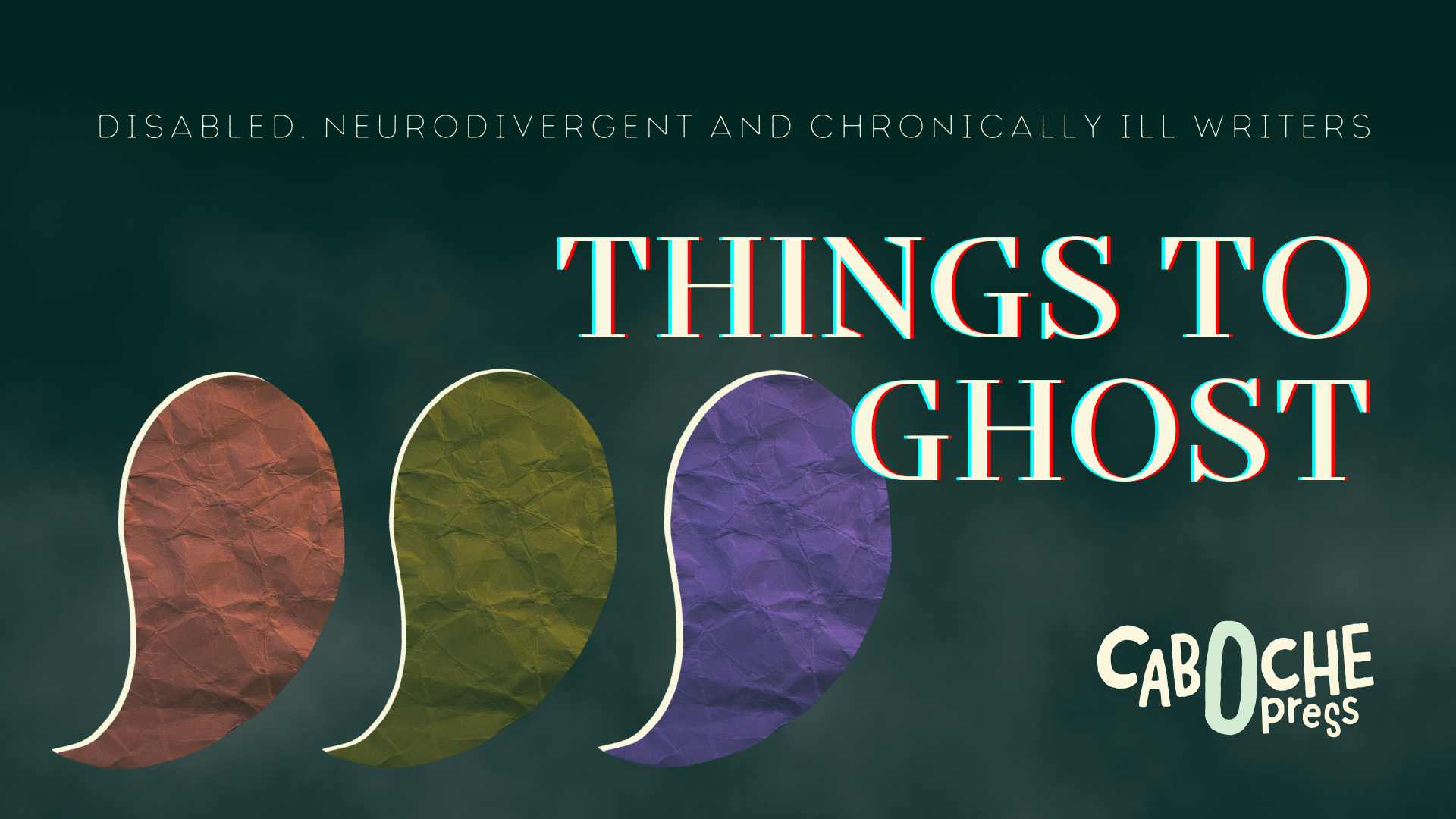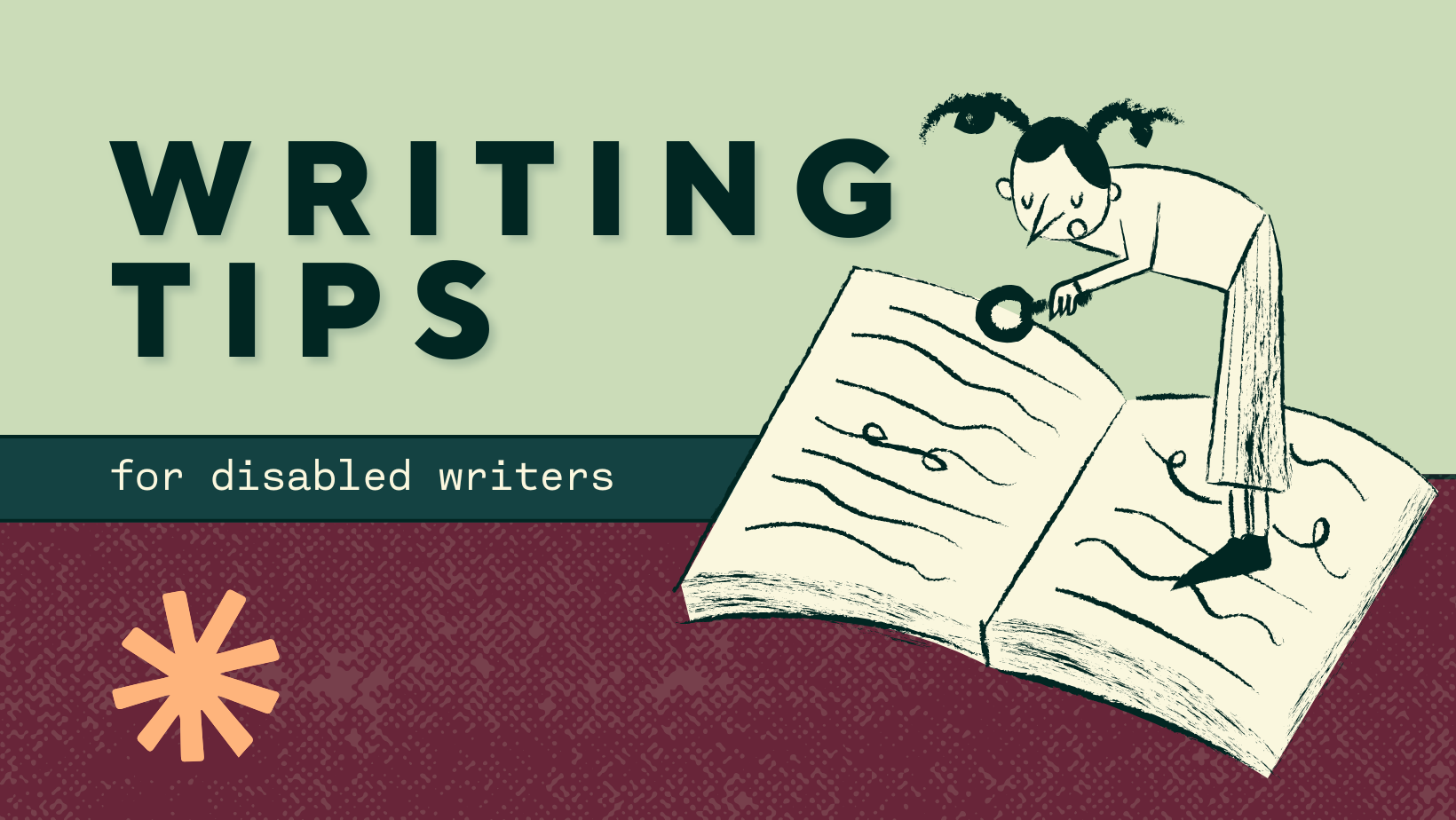For those living with disabilities, neurodivergence, or chronic illnesses, the usual writing advice (write every day or read widely) can feel especially daunting when your body or mind doesn’t always cooperate.
As October comes to an end, here are a few things we think disabled, neurodivergent, and chronically ill writers should let go of to craft a sustainable writing practice!
1. Putting Pressure on Yourself
In a world where our success is continuously measured by our productivity, it’s hard to avoid feeling pressure. In small doses, pressure can also be helpful for neurodivergent folks – an impending deadline, for instance, can be a great motivator to get things done.
However, when you overcommit and that pressure starts to boil, you can easily become overwhelmed. Remember, creativity doesn’t thrive under pressure; it thrives with compassion.
2. Being Scared of Rejection
We’ve all been there – you sent a piece you poured yourself into, only to receive an apologetic rejection email. For those of us with Rejection Sensitive Dysphoria (RSD), those emails can feel pretty personal, especially when they start piling up.
Any writer will tell you, rejection is part of the job description. I know that doesn’t make it any less painful, but if you don’t put yourself out there (continuously), you won’t get published.
3. Setting Unrealistic Writing Goals
With November (National Novel Writing Month) approaching, it can be tempting to join a writing challenge with a daily word count goal. However, for writers with fluctuating levels of energy, these goals can do more harm than good.
If you miss a day or if you fall behind, it’s easy to feel like you’re failing. Instead, we encourage you to set a time-based goal – aim to write for 20 minutes a day or better yet, set a goal to write for 2 hours every week, allowing more flexibility in your writing practice.
4. Trying to Avoid Making Mistakes
Striving to avoid mistakes can be paralysing, especially for those with neurodivergent thinking, where attention to detail might already feel heightened. Trying to write while actively avoiding making mistakes is an impossible task.
To get out of this mindset, we recommend freewriting exercises, spending some time editing instead, or even taking a step back from the page entirely. When we become hyperfocused on small details, it’s easy to forget that drafts are meant to be messy. Allow yourself to be messy and imperfect too.
5. Comparing Yourself to Other Writers
When looking at prolific writers you admire, it’s easy to feel like you’re falling short. In college, I remember thinking I would publish a book by the time I was 22. After all, Mary Shelley started writing Frankenstein when she was 19, and was published by the time she was 21 years old.
But then, authors like Proust and Tolkien didn’t publish anything until they were in their mid-forties. We’re all on different paths, moving at our own pace.
6. Feeling Guilty About Resting
We tend to view productivity with capitalistic lenses, and anything doesn’t have the potential for gain is viewed as unproductive. But rest is productive, especially for writers managing chronic pain and fluctuating energy levels.
A passive action, like resting, is still an action. Recognise rest as part of the creative process rather than time lost. By taking time to rest and care for yourself, you’re carving out space for your creativity to sprout in the future.
In the spirit of self-compassion, it’s time to ghost some of these weighty expectations. Remember, there’s no single right way to be a writer – your path is your own.



